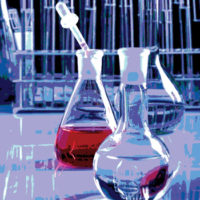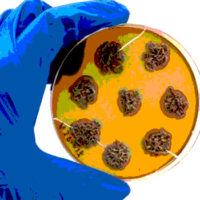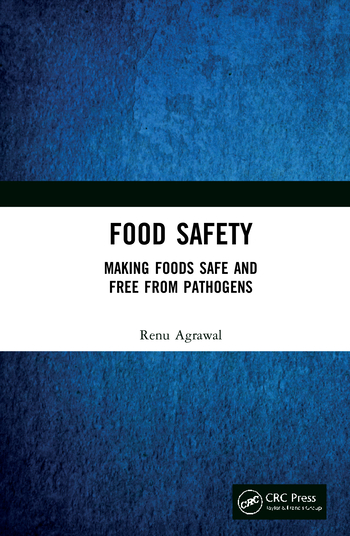A Closer Look at Food Allergen Screening: Gluten Contamination

The Problem:
A sample from a client who regularly requests testing for confirmation that their product is gluten free received a result that indicated high levels of gluten contamination using the R5 enzyme-linked immunosorbent assay (ELISA) method. The client was puzzled and concerned because their in-house screening process was unable to detect gluten on either this particular SKU or this lot.
The Investigation:
Further analysis of all ingredients revealed that rice syrup was the contaminated ingredient. The client wanted to know whether Bia Diagnostics could determine the source of the contamination (rye, barley or wheat), suspecting barley syrup cross-contamination from a supplier as a possible culprit. Bia was able to test the rice syrup alongside two different ELISA methods, one using the R5 antibody and the other using the Skerritt antibody (a monoclonal antibody for gluten detection that can be used on a variety of cooked and uncooked foods).
The Results:
The results were telling: The Skerritt ELISA values for the sample were less than 10 ppm, whereas the R5 ELISA values were greater than 200 ppm.
Next Question:
Why did the client’s screening method not reveal contamination?
The Answer:
They used a screening method that utilized the Skerritt antibody that underdetects barley gluten by about 20-fold, highlighting the importance of utilizing the best fit-for-purpose method or combination of methods for your application.
Looking Forward
The prevalence of allergic diseases in the industrialized world has been on the rise for the last 50 years, according to the American Academy of Allergy, Asthma and Immunology. The U.S. Centers for Disease Control and Prevention state that food allergies are a growing food safety and public health concern that affect an estimated 4–6 percent of children in the United States. Coupled with the finalization of the Food Safety Modernization Act, monitoring of food safety systems is more critical now than ever.
Bia Diagnostics is available to assist all organizations with their Hazard Analysis and Critical Control Points plans for food allergen screening and label verification.
The Expedited Expertise You Need
Bia Diagnostics is ISO 17025 accredited and AOAC, Good Laboratory Practices and Good Manufacturing Practices compliant. The company’s food diagnostics facility, located in beautiful Vermont, brings over 50 years of laboratory experience and nearly 30 years of food allergen testing expertise. Using state-of-the-art technologies in food analysis, Bia offers the most reliable, highest-quality results possible. By specializing in food allergens, the company can offer rapid turnaround times including same-day analysis. Clients receive Certificates of Analysis for each sample as well as complete data reduction.
Partnering with You to Find the Best Solutions
With so many ingredient, flavor and preservative combinations possible, food matrices can be very complex. Bia Diagnostics works closely with your team to develop a customized plan to meet your specific testing needs. This can include evaluation and validation of the method with each specific matrix that the assay would encounter in your facility, thus ensuring the most accurate results and avoiding costly recalls.
At the Service of Our Customers and the Scientific Community
Customer service is the keystone of Bia Diagnostics’ corporate mission. To that end, the company prides itself on providing fast and reliable responses to client needs, including unparalleled service and the development of personal relationships with all customers, regardless of size.
Bia Diagnostics strives to be a caring and active member of the scientific community by conducting independent and collaborative research to further the understanding of food allergen safety and of the community. By authoring scientific papers and presenting at scientific conferences such as AOAC International, International Food Technology Association and the American Association of Cereal Chemists, Bia works each day to develop innovative tools to help food manufacturers produce the safest products for even the most allergen-sensitive consumers.
And now, Bia Diagnostics has added real-time PCR testing for food authenticity and detection of genetically modified organisms to the services offered.
Bia Diagnostics is your partner in product quality control! It is your lab!
www.biadiagnostics.com
Looking for a reprint of this article?
From high-res PDFs to custom plaques, order your copy today!








